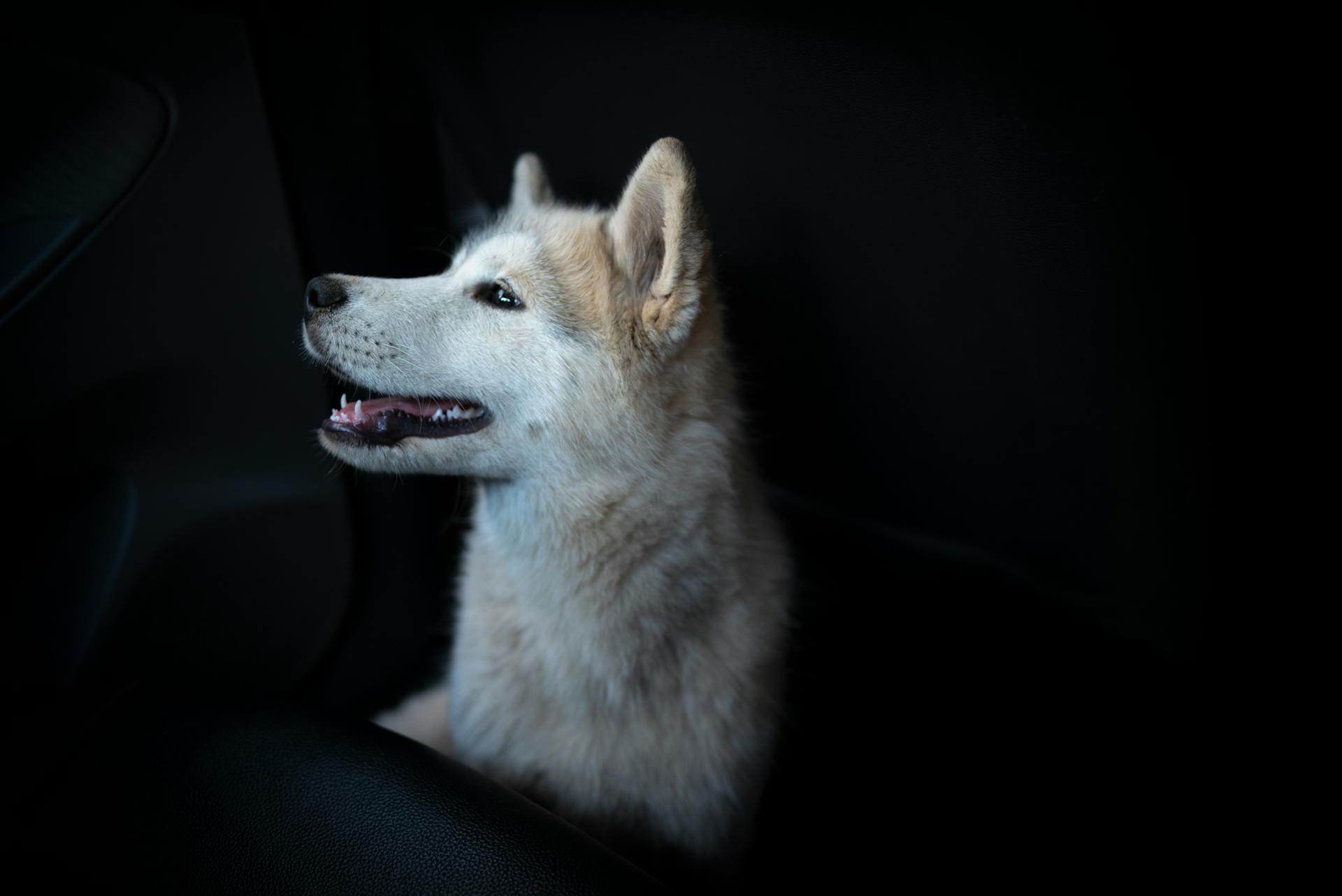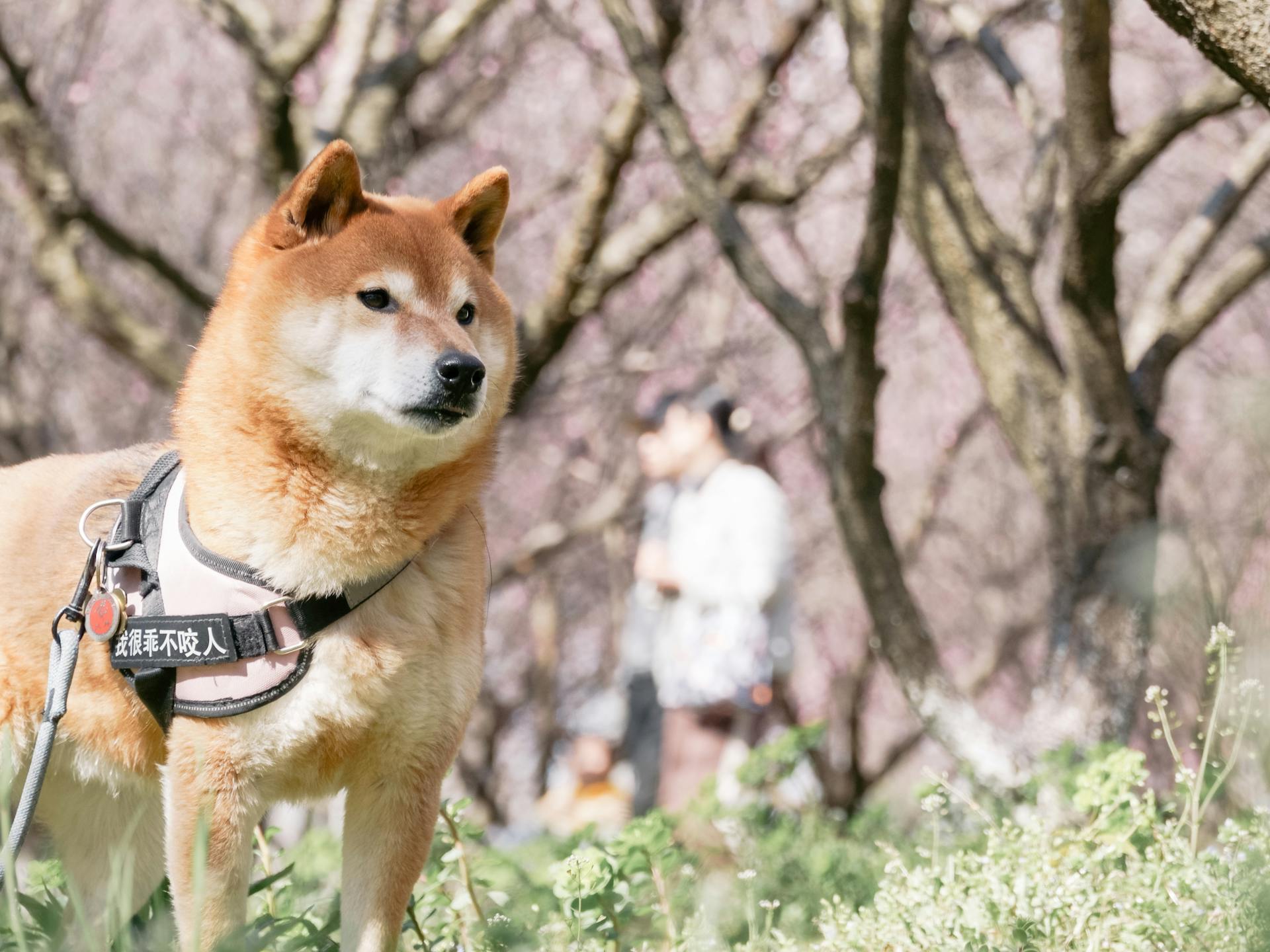
If you're considering bringing an F1 Wolfdog into your family, it's essential to understand their unique needs and characteristics.
F1 Wolfdogs are a cross between a domestic dog and a wolf, which can result in a wide range of characteristics and temperaments.
They are highly intelligent and require a lot of exercise and mental stimulation to prevent boredom and destructive behavior.
F1 Wolfdogs can be quite large, with males weighing up to 150 pounds and standing as tall as 30 inches at the shoulder.
Their wolf heritage also means they have a strong prey drive and may not be suitable for homes with small pets.
In general, F1 Wolfdogs are known to be loyal and loving to their family, but can be wary of strangers and may require time to warm up to new people.
With proper training and socialization, they can make wonderful companions for experienced dog owners.
Are They Legal?
Wolfdogs are legal on the federal level, but their state and local status is a different story. They're considered domestic animals.
In 12 states, it's flat out illegal to keep a wolfdog hybrid as a pet: Connecticut, the District of Columbia, Georgia, Hawaii, Illinois, Massachusetts, Maryland, Michigan, New York, Pennsylvania, Rhode Island, and Wyoming.
In Michigan, there's a special exception for "grandfathered" wolfdogs, but that's a unique case.
Defining and Understanding Wolfdogs
Defining a wolfdog can be tricky, as there's no clear definition or breed registry. Experts generally agree that a wolfdog is an animal with a pure wolf in its family, no more than four or five generations back.
The problem is that there's no way to prove an animal's pedigree, and genetic testing is often reserved for wildlife management and law-enforcement agencies. This means that phenotyping, or having an expert evaluate an animal's physical and behavioral characteristics, is the most accessible way to identify a wolfdog.
However, few experts are trained in phenotyping wolfdogs, and as a result, many dogs are erroneously labeled as wolfdogs.
Wolfdogs
Wolfdogs can be tough to identify, regardless of laws passed to limit them. Several years ago, the USDA released a report estimating that there were about 300,000 wolfdogs in the U.S.
Most people believe a wolfdog is a mixed breed created by mating a regular dog with a wild wolf, but that's not usually the case. In fact, experts say that the vast majority of animals sold as wolfdogs actually possess very low wolf "content", or none at all.
Genetic testing is theoretically possible but is essentially unavailable to most individuals and is not 100% accurate. Phenotyping, having an expert evaluate an animal's physical and behavioral characteristics, remains the most accessible way to identify a wolfdog.
The USDA does not extend approval for the use of the standard rabies vaccine with "hybrids" due to the lack of reliable testing for rabies in these animals. This means that wolfdogs who bite a person can be considered a rabies risk, even if they've been vaccinated.
Wolfdogs may have a propensity toward den-building and digging, which can destroy your lawn and furniture. They can also dig several feet down in order to escape from an enclosure.
Microsatellites in Wolf-Dog Hybridization
Microsatellites, also known as short tandem repeats, are a type of DNA marker used to study genetic diversity in wolf-dog hybrids. They are highly variable and can be used to identify individual animals.
These markers are particularly useful in distinguishing between different wolf-dog hybrid lines and can provide valuable information about an animal's ancestry.
Consider reading: Wolf-dog Permit
In a study of wolf-dog hybrids, researchers used microsatellites to examine the genetic diversity of 22 hybrids. The results showed that the hybrids had a unique genetic profile that was distinct from both wolves and dogs.
The use of microsatellites in studying wolf-dog hybridization has helped scientists better understand the genetic makeup of these animals and has provided insights into their behavior and ecology.
A fresh viewpoint: Pictures of Wolf Hybrids
Not for Most Dog Owners
High-content wolfdogs can be a handful, acting more "wolfie" than their low-content counterparts.
Many experts, including animal behaviorist Wilde, discourage breeding or buying wolfdog pups from breeders due to the significant behavioral challenges they pose.
Wolfdogs require more space and specialized care than domesticated dogs, often necessitating the construction of outdoor enclosures.
The average dog owner may struggle to handle the needs of an ordinary dog, let alone a wolfdog.
Readers also liked: High Content Wolfdog
Wolfdog Behavior and Information
Wolfdogs may display unpredictable behaviors due to their wild instincts, which can make them untrainable and inherently dangerous.
Experts have determined that wolves and dogs share more than 99 percent of their DNA, but those few strands make a big difference. This difference can lead to behaviors such as den-building and digging, which can destroy your lawn and furniture.
Wolfdogs may have a propensity toward den-building and digging, and can also dig several feet down to escape from an enclosure. The starting cost of creating a safe and secure wolf dog hybrid enclosure is $3000, not including construction.
A wolfdog who bites a person can be considered a rabies risk, even if they've been vaccinated, because there's no approved rabies vaccination for wolfdogs. This means that euthanasia may be necessary if a wolfdog bites someone, making it a high-stakes gamble for owners.
Wolfdog Behavior
Wolfdog behavior can be quite unpredictable, and it's essential to understand their natural instincts before deciding to bring one home. Experts have determined that wolves and dogs share more than 99 percent of their DNA, but those few strands make a big difference.
Wolfdogs may display behaviors that are typical of wild animals, such as self-sufficiency, the ability to find and kill prey, and fending off enemies. They may exhibit these behaviors to some degree, which can be a challenge for owners.
Wolfdogs have a strong instinct to dig and build dens, which can lead to destroyed lawns and furniture. The starting cost of creating a safe and secure wolf dog hybrid enclosure is $3000, not including construction.
Their curiosity is another area where wolfdogs can be quite destructive. Wolves are constantly exploring their environment, and in a home, that means investigating everything, including cabinets, appliances, and furniture.
Information and Pictures
Wolfdog Behavior and Information is a complex topic that requires a deep understanding of the breed's history, characteristics, and needs.
Wolfdogs are a cross between a wolf and a domestic dog, and they can exhibit a range of behaviors depending on their individual genetics and upbringing.
Wolfdogs are highly intelligent and require a lot of mental and physical stimulation to prevent boredom and destructive behavior.
They are also naturally protective of their pack and territory, which can make them wary of strangers.
In the wild, wolves are highly social animals that live in packs with a strict hierarchy, and wolfdogs can inherit this social structure.
A wolfdog's social needs can be met through interaction with their human family and other wolfdogs, but they also require space and alone time.
Wolfdogs are generally quiet animals, but they can howl like wolves, especially if they're bored or need attention.
A different take: Alaskan Malamute Wolves
Discussion
Wolfdogs are highly intelligent animals that thrive on mental and physical stimulation. They require a lot of exercise and training to keep them happy and healthy.
Their pack mentality means they need to be part of a family unit and can become destructive if left alone for too long. A study found that wolfdogs can become depressed and anxious if they don't receive enough attention and interaction.
Wolfdogs are naturally curious and love to explore their surroundings, which can sometimes get them into trouble. They need to be kept safe and secure, especially around young children and other pets.
Their strong prey drive makes them excellent hunting companions, but it also means they need to be kept away from small animals and pets. A wolfdog's instinct to chase and catch prey is hardwired into their nature.
Training a wolfdog requires patience, consistency, and positive reinforcement. They respond well to rewards and praise, but can be resistant to punishment and negative feedback.
Frequently Asked Questions
What is a F3 wolfdog?
A F3 wolfdog has wolf great-grandparents, but no wolf grandparents or parents, indicating a mix of wolf and dog ancestry three generations back. This classification is part of the Filial Generation system used to describe the pedigree of wolfdogs.
What two dogs make a wolfdog?
A wolfdog is a hybrid produced by breeding a domestic dog with a gray wolf or one of three other wolf species: eastern wolf, red wolf, or Ethiopian wolf. This unique crossbreed combines characteristics from both parent species.
Sources
- https://windstoneeditions.com/forums/topic/is-your-wolf-dog-really-a-wolf-dog-how-to-tell/
- https://www.thewildest.com/dog-lifestyle/do-wolfdogs-make-good-pets
- https://www.frontiersin.org/articles/10.3389/fevo.2021.760160
- https://www.dogbreedinfo.com/w/wolfdog.htm
- https://www.alexhibbert.com/blogx/2015/10/10/wolfdogs
Featured Images: pexels.com


